WHAT DOES ORGANIC MEAN?
Organic goods refer to the products of an agricultural system in which farmers avoid the use of pesticides, man-made fertilisers, growth regulators, genetically modified organisms (GMO), irradiation, and livestock feed additives to prevent nutrient depletion in soils or artificial changes to DNA.
They keep farming simple, pure, and natural by using natural measures to control the outcomes of their crops or livestock. As opposed to the aforementioned approaches, organic farmers use methods such as crop rotation, plant, and animal manures, hand weeding, and biological pest controls to grow healthy, nutrient-rich, and sustainable produce. These natural methods of control help to maintain & enhance soil fertility whilst preventing soil erosion allowing earth time to rejuvenate. This time is especially important for nutrient-rich soils which we require to produce quality fruit, veg & livestock.
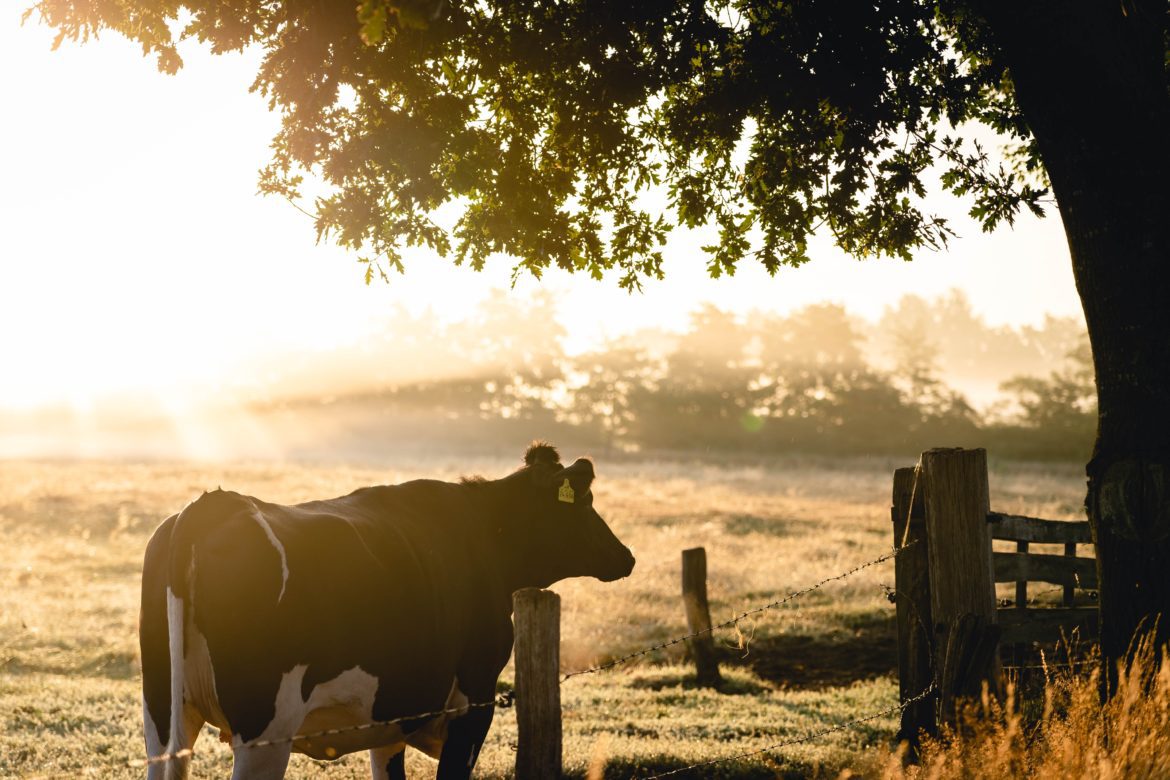
Another side of organic farming has to do with the minimization of toxin transfer in our ecosystem. Have you ever heard of the term biomagnification? This describes the process where toxins become more and more concentrated in the living tissues of organisms as you go up the food chain. In nature, 10% of energy is transferred when one organism eats another, but 100% of toxins from the prey will be transferred to the next trophic level. For example, if pesticides are sprayed on the grass to prevent weeds but then a cow eats that grass, it will obtain 10% of the stored chemical energy from the grass and 100% of the toxins. Meaning that when a human then eats that cow, it will not only receive the 100% of toxins from the grass but also all of the other toxins that the cow has accumulated in its body over time. (Obviously, humans probably wouldn’t eat the whole cow but think of this for illustration purposes).
Over time we also accumulate levels of toxins that can impact our health and overall wellbeing. Remember we receive 100% of the toxins from everything we eat. If we get enough toxins accumulating in our bodies, and if everyone is consuming the same types of toxins, it may mean that they can get into our water supply, in turn affecting not only human health but nature too. So, by buying organic, you prevent this accumulation of toxins in our food web and help look after our environment. Organic means healthy soil, healthy plants, and a healthy you.
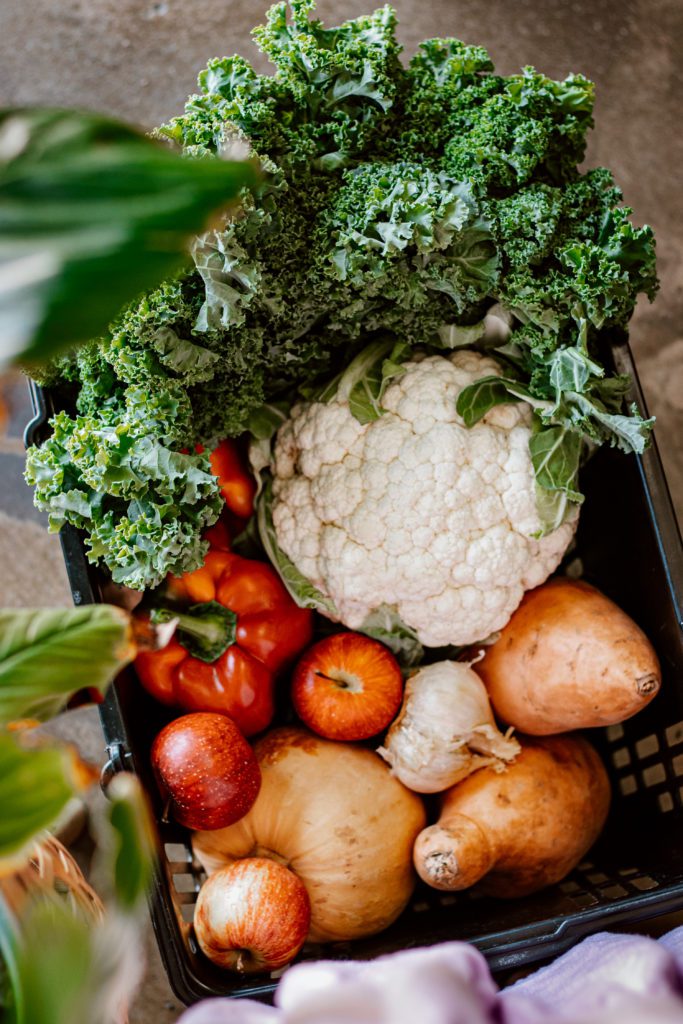
DIFFERENCE BETWEEN ORGANIC & CERTIFIED ORGANIC
Organic can have various meanings in different parts of the world.
In Australia, certified organic always means that products are
- Sustainable and Regenerative
- Free Range and Not Tested on Animals
- GMOs are prohibited
- Free from harmful or synthetic chemicals
For products to be labelled as Certified Organic in Australia, they must go through a rigorous certification process that involves inspection and approval by an independent third-party certification agency which ensures that the farm, manufacturer and final product fulfils the appropriate standards such as the Australian Certified Organic Standards. But the process doesn’t end there. These companies are then audited yearly and randomly to make sure that they are complying with the requirements of their certification.
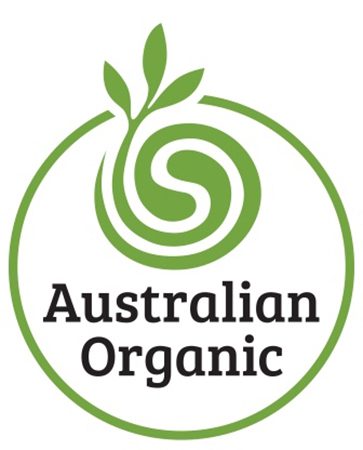
When buying organic, make sure you’re buying certified by looking out for the Australian Organic symbol.
Presently, Australia has no regulation for the term ‘organic’. Whilst a product may be labelled as organic, it might not have gone through the same diligent assessment process as a certified organic alternative. Lack of government regulation has resulted in some products being labelled as organic while only 2% of organic ingredients are used in their labelling. But by looking out for logos such as the ‘Bud’ on organic labelled products, you will be able to guarantee that what you buy is entirely organic. Although the fundamental values of certified organic and organic are the same, certified organic means so much more.
How to organic on a budget
Starting out might sound expensive and scary, but it doesn’t have to be. Below you can find some tips on how to make supporting organic products more affordable so that it will be sustainable for you down the track.
Buy seasonal fruit & veg: Fresh produce is generally the cheapest when they are in season. Seasonality is nature’s way of telling us exactly what our body needs during different months of the year. Therefore, it comes as no surprise that fruit and veg such as lettuce which assists with hydration or tomatoes that can help protect your cells from UV damage are bountiful in summer, whilst others such as citrus that are high in vitamin c, helping to boost immunity or avocados that may assist your body’s ability to absorb antioxidants are more prevalent during winter. Foods grown and consumed in their natural season contain higher levels of nutrients and are also better tasting.
Grow your own: If you live in the city you might think “I don’t have space for a veggie patch” and that’s okay. You don’t need a garden to grow, and if you’re an indoor plant lover (like us) you’ll know that you can do a lot with pots. All you need is a few of your favourite herbs and vegetables and a couple of small pots. You can grow them anywhere, on windowsills, on the driveway or on the porch. Herbs are a great way to try out your green thumb. They are generally low maintenance, and from there, you can work your way up to veggies or fruit.
Freeze and reuse: Collecting fresh produce when they are in season, and then freeze them for later in the year to use in smoothies, jams, ferments, or casseroles that can save plenty of money down the track, with minimal loss to phytochemical ingredients, minerals and fibre.
Cook at home: Not only will you know exactly what is going in your food, but by cooking at home you will also be saving on restaurant expenses and takeaways. Additionally, you will find yourself becoming more aware of what you are eating and how that affects how your body feels overall. If you can get into the habit of meal prepping, you will also be saving time in the long run!
WHAT’S IN SEASON THIS SEPTEMBER?
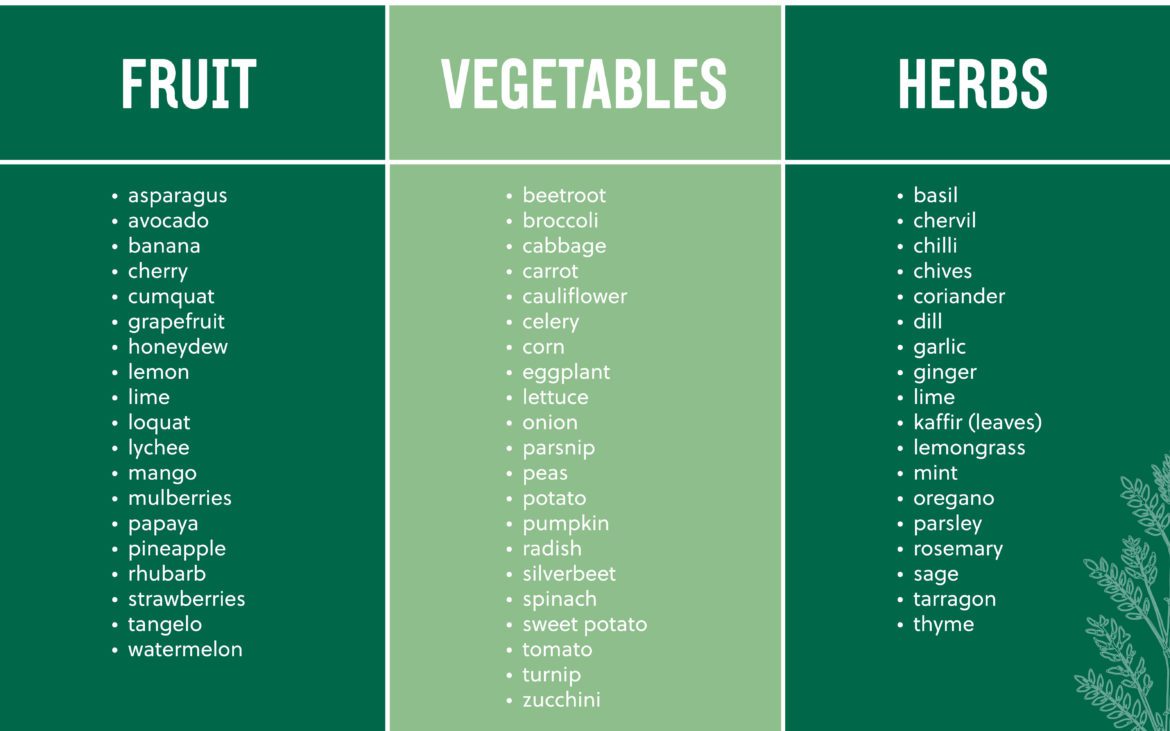
To find out more head to Australian Organic Awareness or follow them on Instagram.
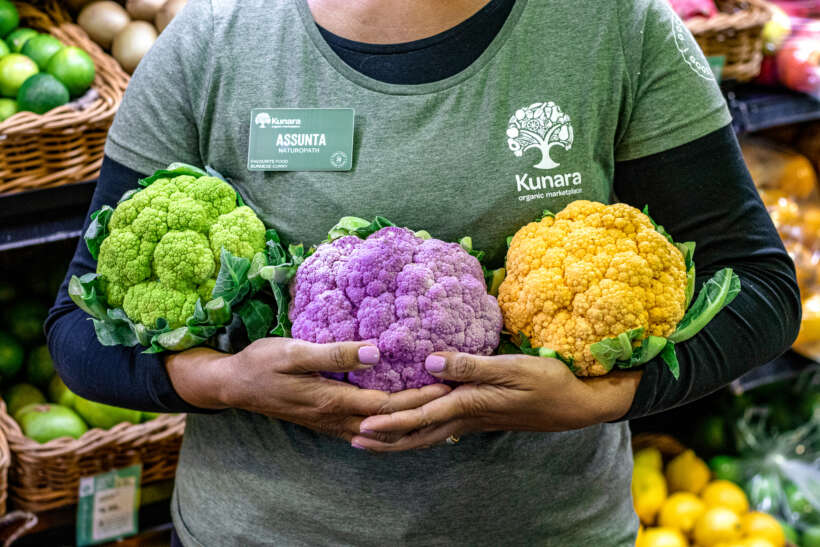
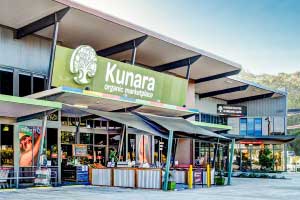
Leave a Reply